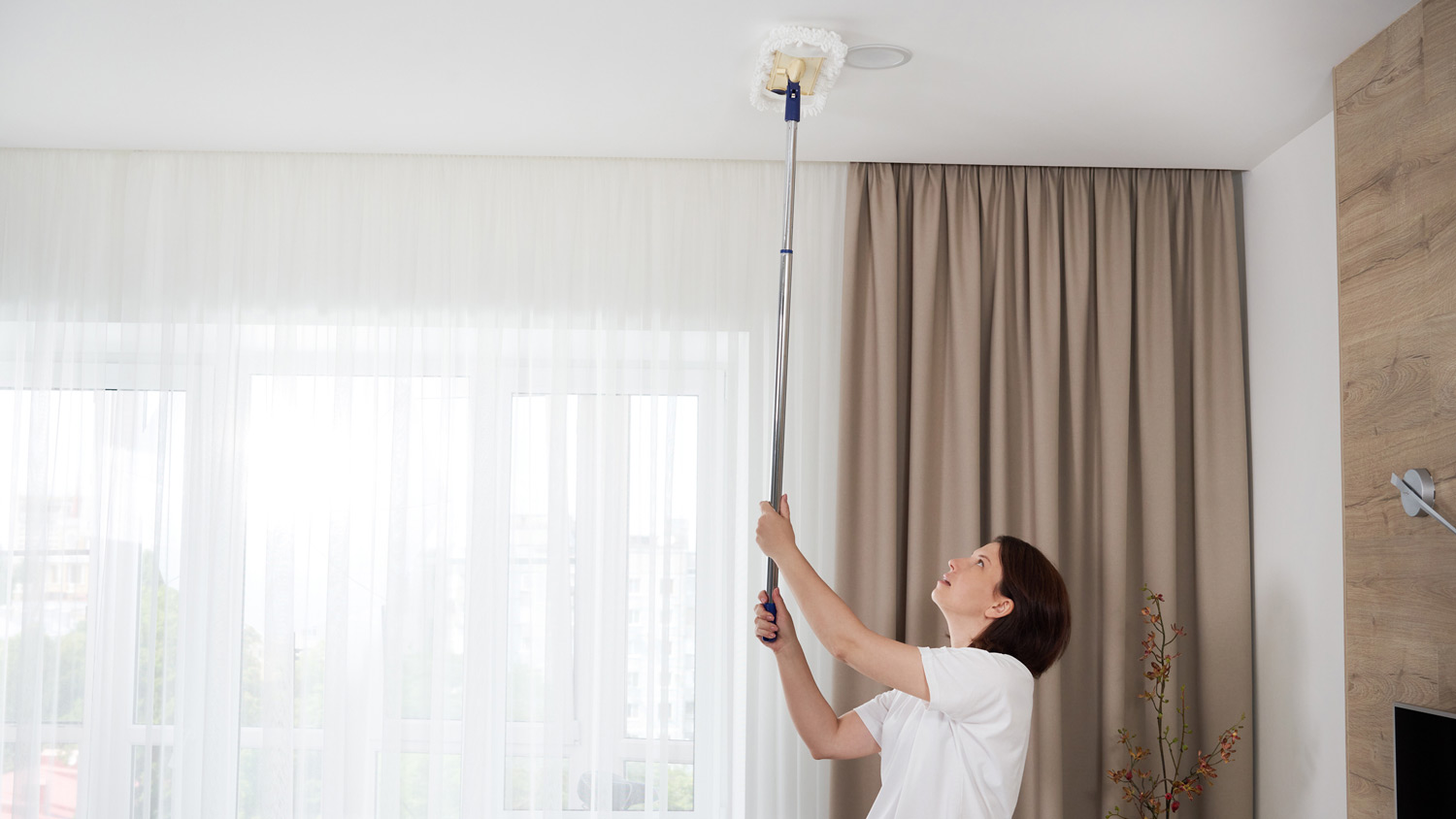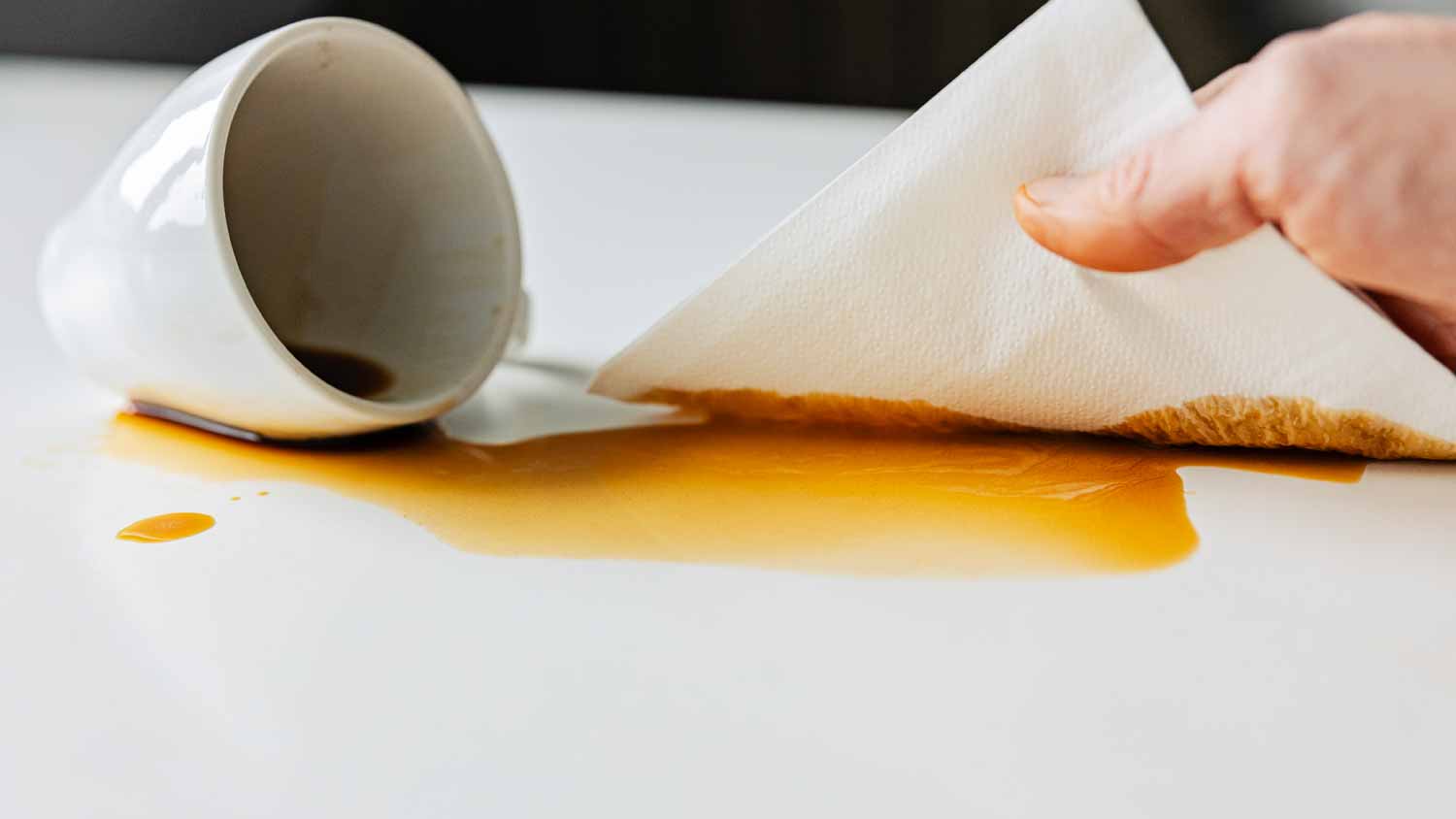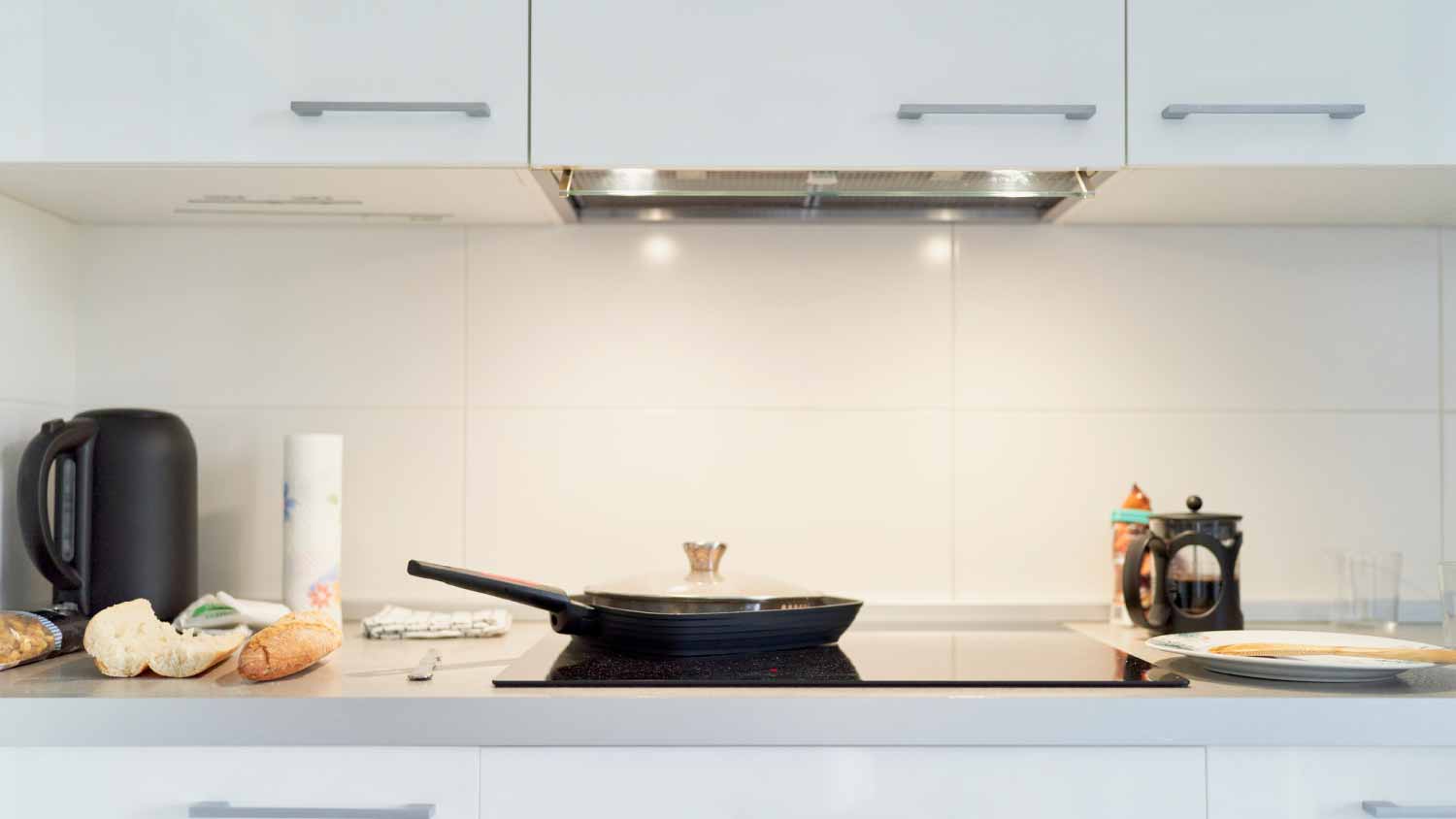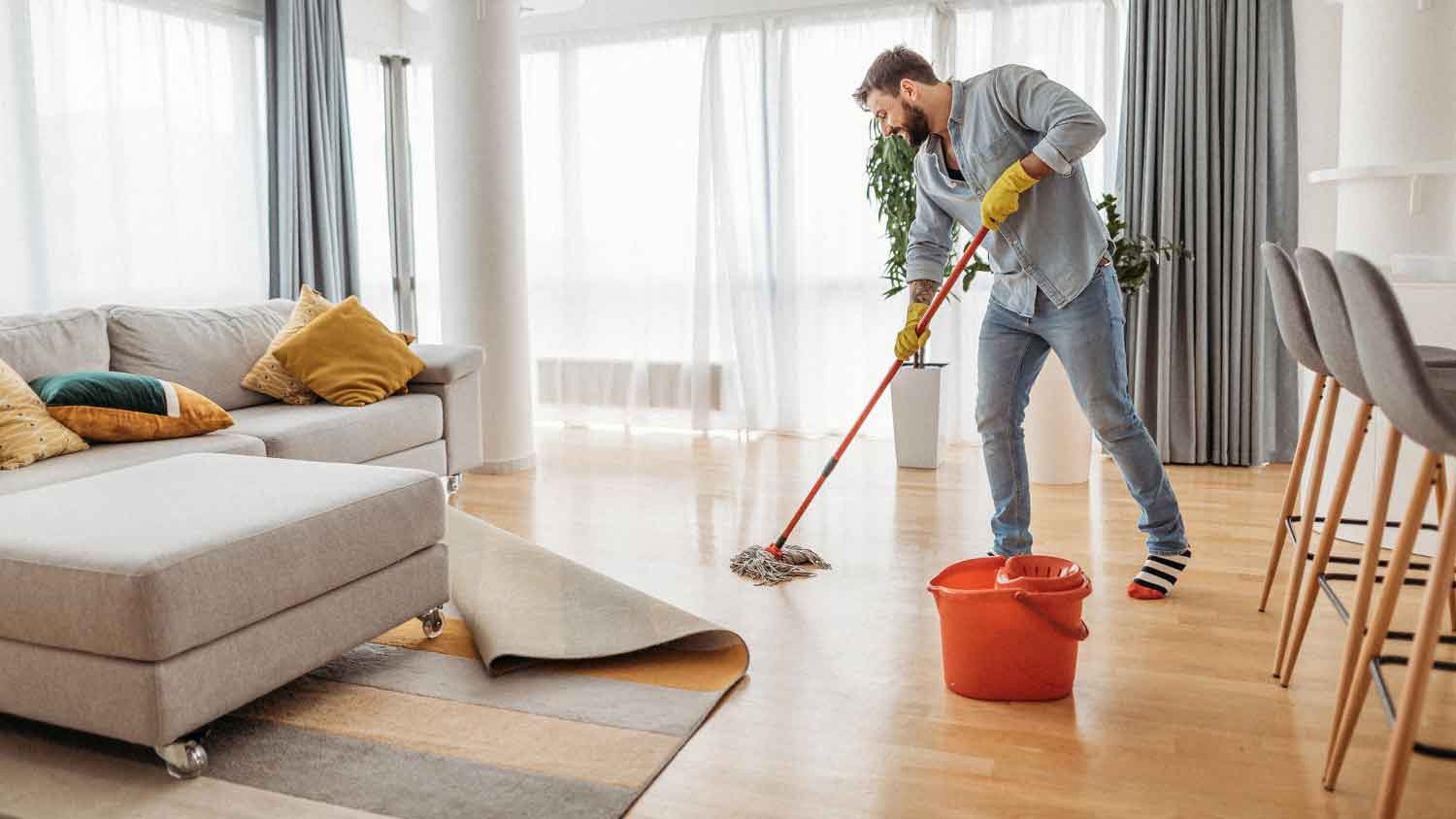
Discover the average acoustic ceiling cleaning cost, what affects pricing, and how to save. Get expert tips to budget for your acoustic ceiling cleaning project.
The answer may not be crystal clear


Quartz countertops generally resist stains, but certain substances can cause mild to severe stains.
Untreated food and drink spills, harsh chemical cleaners, extreme heat, hard water, and oil can all cause unsightly stains on quartz countertops.
Wiping up spills immediately can prevent and remove stains, but in severe cases, you may need to hire a professional cleaner to deep-clean your countertops.
Quartz is an engineered stone countertop surface made from ground-up quartz particles and resin. The result is a durable surface ideal for kitchens and bathrooms alike. But quartz countertops aren’t entirely immune to damage. Certain substances can cause unsightly stains that are tough to remove. If you’re wondering, “Why is my quartz countertop staining?” this guide will help you solve the mystery (and prevent it from happening in the future).

Spills on your kitchen counter are inevitable. And although quartz countertops are highly stain-resistant, stains can happen when you don’t wipe up spills quickly enough. Be especially careful with tomato-based foods, coffee, and red wine, which are notorious for leaving lasting stains.
Wipe up food and drink spills as soon as they happen. Use a cloth or paper towel to soak up as much of the spill as possible, then use a quartz-safe cleaner to wipe the countertop and remove any lingering residue.
Using the wrong type of cleaner on your quartz countertop can cause stains—especially if the cleaner contains harsh chemicals. Chemical cleaners can damage the resins in a quartz countertop, decreasing its staining resistance.
Stay away from cleaners that contain bleach, acid, caustic soda, or paint thinner. Instead, use water and dish soap to remove stuck food from the countertops and finish with a mild all-purpose cleaner to leave the countertops shiny and streak-free.

Quartz is a heat-resistant material, but prolonged exposure to extreme heat can cause unsightly stains on your countertop. Placing an extremely hot item on a quartz countertop can leave burn marks, which can be difficult to remove altogether.
Use trivets or hot pads underneath a hot pan or dish to protect your quartz countertop. It’s best to leave burn mark removal from a quartz countertop to a pro. Countertop repair costs vary, but heat damage repair typically runs between $150 and $800.
Hard water can cause widespread damage to your home, including to your quartz countertops. If allowed to dry, the minerals in hard water can leave deposits that make your countertops look dull and dingy.
Wipe up water spills as soon as you notice them. Lift stubborn stains with a paste made of baking soda and water. And, if you have extremely hard water, consider installing a water softener to protect your countertops and appliances from damage.
Quartz countertops are naturally resistant to stains from oil and grease. But if you don’t wipe up a cooking oil or bacon grease spill quickly, it can cause permanent damage to the surface.
Clean spilled oil and grease from your countertops ASAP. If you don’t notice the spill immediately, clean it with glass cleaner or a quartz-safe degreaser to dissolve the grease and lift it off the surface.

Quartz is relatively easy to clean, but using the wrong products and cleaning supplies could inadvertently stain your countertop. Abrasive cleaners and sponges can scratch the quartz, and chemical cleaners can permanently damage the countertop.
Learn how to clean quartz countertops the right way. Use a microfiber cloth and a mild all-purpose cleaner. You can also use a mixture of dish soap and water. Wipe the countertop thoroughly, and wipe it dry with a clean microfiber cloth.
A handy homeowner with a microfiber cloth and some all-purpose cleaner can tackle most minor quartz countertop stains. However, consider hiring a local house cleaner to deep-clean your countertops if the staining is excessive. Professional house cleaning costs between $120 and $240 per visit, while the average customer can expect to pay $170. This price includes cleaning the entire house—not just your countertops.
If cleaning alone doesn’t remove the stain, you may need to hire a local countertop repair company to address the issue.
From average costs to expert advice, get all the answers you need to get your job done.

Discover the average acoustic ceiling cleaning cost, what affects pricing, and how to save. Get expert tips to budget for your acoustic ceiling cleaning project.

Apartment cleaning costs vary considerably depending on the cleaning frequency, the apartment's size, and its inhabitants' cleanliness.

Discover the average kitchen hood cleaning cost, what impacts pricing, and how to budget for this essential maintenance. Get tips to save and keep your kitchen safe.

Wondering, “Why is my floor dirty even after mopping?” Learn why this issue is happening, how to prevent it, and when to call a professional cleaner.

Does your home need a deep clean? Use this comprehensive house cleaning checklist to get your home sparkling.

The benefits of steam cleaning your home are abundant, and you’ll wonder why you didn’t do it sooner. However, you must learn which materials cannot be steam cleaned.